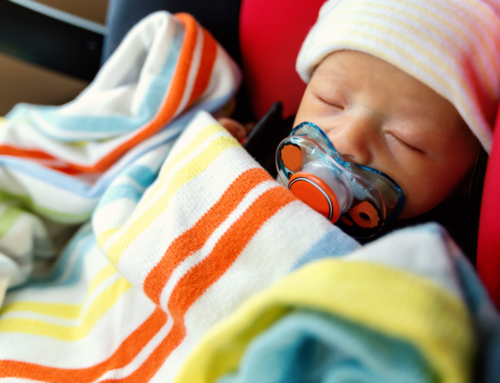The basic requirements for adopting a baby in Texas are age, health status, ability to financially support a child and a clear criminal background check. Beyond that different adoption agencies might have different requirements such as religion, sexual orientation or marital status.
Many hopeful adoptive parents have concerns about whether a specific issue may disqualify them from adopting. We’ve rounded up some of the common situations we’re asked about at Adoption Advocates – check out our answers below.
Can I adopt if I have anything that would show up on a criminal background check?
You can still adopt if you have a criminal background depending on the charge and the outcome. There are some offenses that are categorized as an Absolute Bar meaning if convicted of that crime, that person is permanently barred from adopting. Murder, sexual assault and solicitation of a child are all offenses that will bar you forever from adopting. Other lesser offenses might bar someone for a specific time period and/or require a risk evaluation. For instance, a person convicted of DUI has a five year bar, then between five and ten years, must do a risk evaluation. Perjury requires a risk evaluation within 10 years. After 10 years, a risk evaluation will not be needed in those situations. A risk evaluation is a process within the Background Check Unit in which documentation regarding the charge, final disposition, personal statement is obtained and run through several levels of critique for the person to be approved. For more information about what charges affect the ability to adopt, please visit the Texas Health & Human Services website.

Can I adopt if I have been diagnosed with or take medication for a mental health issue?
The home study provider will assess the mental health condition and how it might affect parenting. Many people have conditions that are well managed by medication, counseling, exercise, eating well and meditation. The provider will also take into consideration how well the person is functioning in their life and will look at their support system. Ultimately, the best interests of the child prevails and children need parents that can provide stability and safety in the home. Serious conditions such as schizophrenia would likely prevent someone from getting approved but a diagnosis of depression or anxiety that is controlled would not be prohibitive.
Can I adopt if I have a physical disability?
Yes, if it doesn’t significantly impact one’s ability to parent or your life expectancy. Your home study provider will assess the disability and how it might hinder your ability to parent. For instance, if someone is in a wheelchair or is blind, what limitations will that have on their ability to parent an infant, a toddler or school-aged child? Safety issues will be assessed and modifications implemented in those situations. The family might need outside care if the disability could impact safety issues. These scenarios would be addressed on a case-by-case basis.
Can I adopt if I have had cancer or have (had) other major health issues?
When a potential adoptive parent has had a major health issue, the home study provider will need to assess their diagnosis, treatment and prognosis by obtaining this information by the specialist that treated the person. Prognosis would need to include the chance of the condition returning. So, if someone had cancer, what type, stage and past and ongoing treatment will need to be documented as well as the chance it will recur within five years. For approval, the chance of recurrence needs to be small and they need to have a life expectancy of 18 years so they can parent the child to adulthood.
What other factors might prevent an adoption agency from accepting adoptive parents?
Most agencies are looking for adoptive parents who are approaching adoption realistically and either have already been through adoption education or willingness to be educated.
Most couples adopting are white but children of all races are placed for adoption. Adoptive parents who are flexible when it comes to the race of child placed with them are more likely to be accepted. Adoptive families should research transracial adoption before making this commitment, to ensure they understand the unique needs adoptees of a different ethnicity will face, and show willingness to connect their child to his or her biological culture and heritage.
Many expectant parents don’t know they are pregnant initially and might have used alcohol, prescription medications or recreational drugs before they find out. It’s best to get educated on teratogens and the statistics surrounding different exposures and their effects on the baby. I know that sounds scary but you would be surprised to find out that many babies exposed during utero are born healthy. We recommend MothertoBaby.org as a great resource.
Regarding open adoption, you would be hard pressed to find an agency willing to work with a family unwilling to participate in an open adoption. Again, get educated about it! It’s not co-parenting. It’s not a competition. Find an agency that includes a birth parent panel as part of their adoption education. This is critical to your adoption education and being the best support for your child as they grow and process their own adoption.
Within our agency, we will sometimes do a wait list if we have too many types of the same family (families with other children, gay couples, same religious backgrounds). Expectant parents come from many different backgrounds and want different types of families and this allows us to provide them with the choices they desire for themselves and their child.
Ready to Get Started with Adoption
Please keep in mind that these answers are specific to Adoption Advocates and other adoption agencies specific considerations may differ. If you feel like you meet our requirements and would like to learn more about adopting with us, request an information packet online. This informative document includes more information on our process, fee structure and more.








